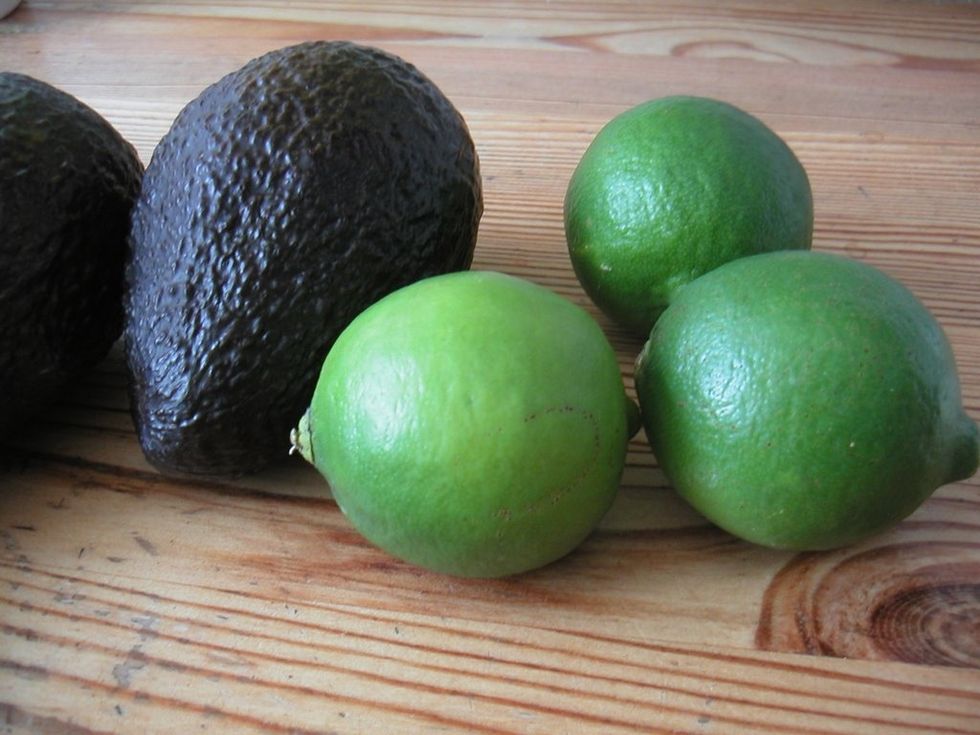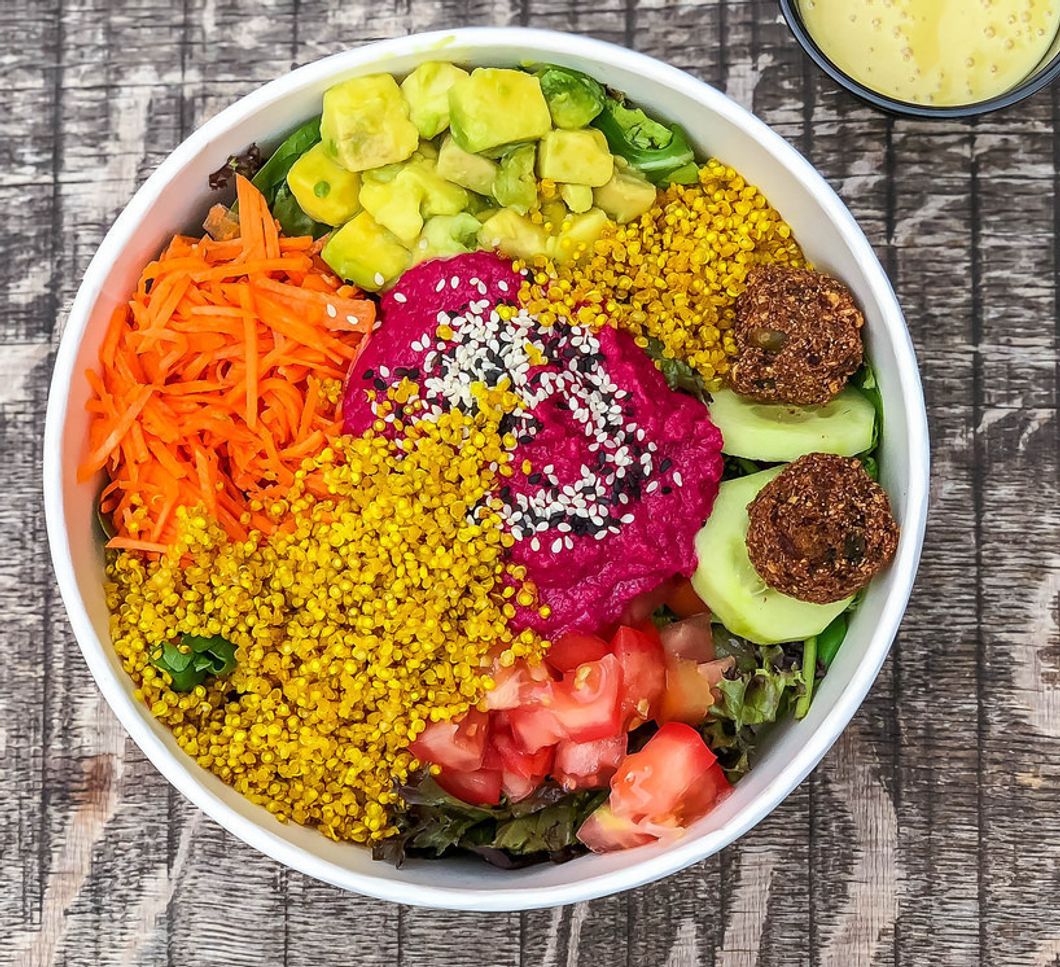Eating healthy in college doesn't have to mean spending your entire paycheck on fancy foods like kale and shrimp (but what a world that would be if there were endless shrimp cocktails as far as the eye can see). There are a lot of foods out there that have a low impact on both your wallet and your waistline. The trick is, though, that these foods can be hard to find. Here are 5 helpful tips for a healthy diet on a low budget:
1. Get familiar with healthy, low-cost food options.

Eggs, peanut butter, frozen vegetables, tofu, and tubs of Greek yogurt are all healthy options that are also affordable, and you can spice them up with different flavor combos to keep it interesting. A personal favorite is plain Greek yogurt with peanut butter and honey, which makes a delicious breakfast or dessert. There are also endless ways to make eggs, and you can even try a sweet variation of scrambled eggs if you one of those people whose sweet tooth is never satisfied.
2. Shop at low-cost stores like Aldi

Surprise! Low-cost food stores like Aldi are not only much cheaper than mainstream grocers, but they sell the EXACT SAME PRODUCTS. For real, the off-brand products that Aldi sells are just repackaged units of Cheerios, JIF, and all of your favorites. Even better, their produce is always super fresh, and they even sell bags of mini avocados for $2.99. Score. If there aren't any Aldi locations around you, generic store brands of foods are often comparable to national brands for a fraction of the price.
3. The freezer is your friend.

Buy foods in bulk where you can. Even though the upfront cost of bulk items is more expensive, the per unit price of the product is much cheaper in most cases. Stores like Costco sell many bulk items that would not be available in normal grocery stores like cereal, meat, and fruit. You can freeze any of the perishable food that you do not immediately want to use, like chicken breasts, vegetables, and bread, to keep them fresh for months longer than on the counter or in the fridge. Just make sure you freeze your food by the "use by" date on the package. And although stores like Costco might not be available near most colleges and universities, it is well worth the trip if you have an opportunity to go.
4. Look at grocery store fliers to see what's on sale for the week.

You may like to get strawberries every time you shop, but you might walk right past grapes that were on a $2 off special. Pick up store fliers that have specials listed for the upcoming week each time you shop and check out coupons in the paper or online and you'll be saving yourself some serious cash.
5. Make a list and stick to it.

It's really easy to go into the grocery store with the intention of buying milk and bread and coming out with a cart full of cookies, wine, and chips. Before you shop, make a list of everything you need to buy and avoid spending unnecessary cash (and calories) on foods that you don't absolutely need. Also, going shopping while hungry is a guaranteed way to buy way more than you will need because everything on the shelf will look delicious. Another great way to stay on track is shopping around the perimeter of the store where the essentials like produce, dairy, and meats are generally stocked, and staying away from the center where grocers keep junk food.
Saving money and eating healthy are both just about being smart with your choices. Remember to treat yourself every once in a while too— you deserve that brownie after a big exam!

















